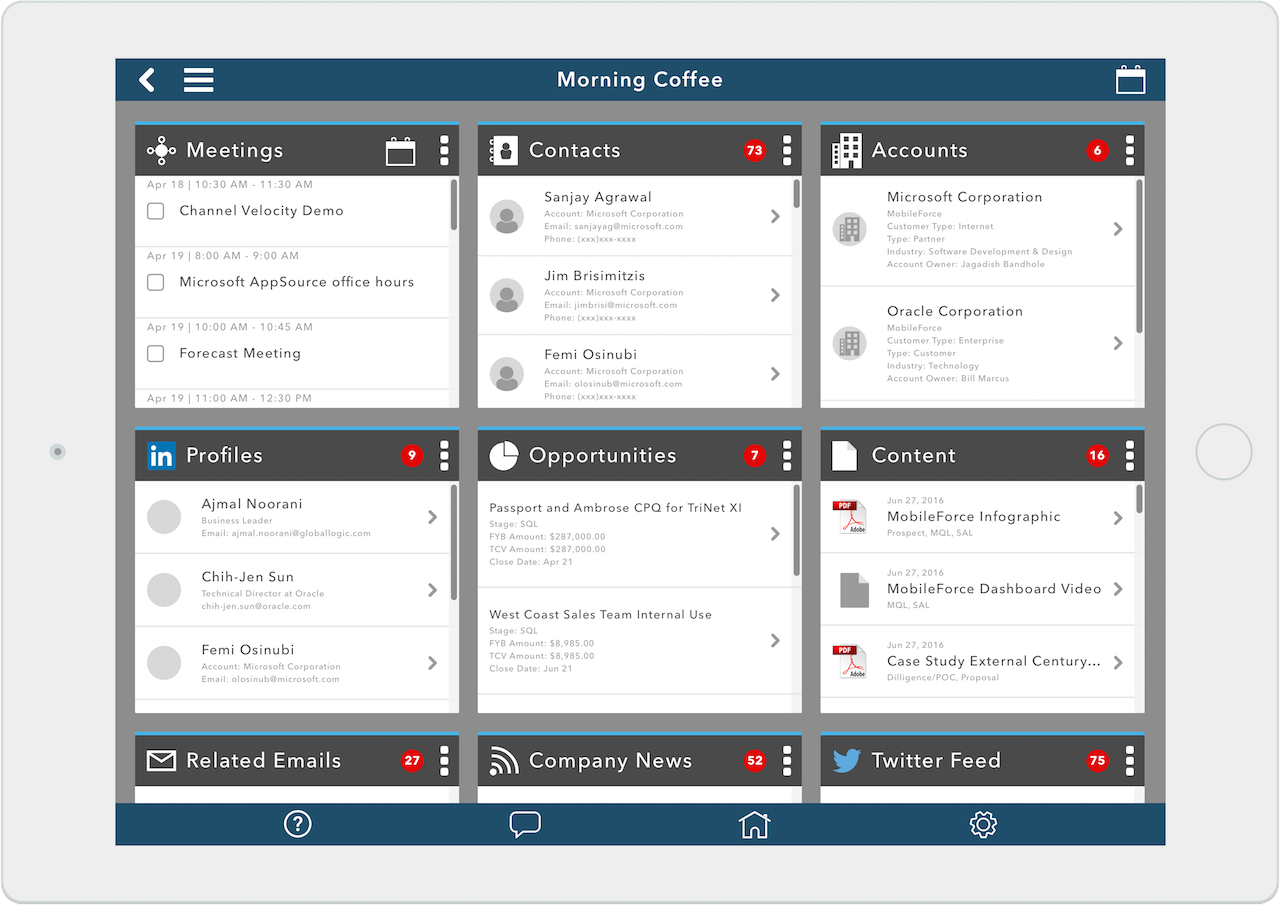The News Details
- Home /
- The News Details
The News &
Updates Details

12
Feb
Post by admin
What is Field Service Management Software?
Managing your company’s resources in external areas, i.e outside of company property is known as field service management (FSM). This includes communicating with and managing field staff, scheduling tasks, and keeping progress checks on-field operations in real-time.
Field service management software helps companies efficiently manage their off-site business operations. There are many excellent FSM software for managing various field operations, and they offer different features. Let’s take a closer look at what FSM software has to offer.
Core Features & Functionality
Field management software may differ in the features that they provide. However, there are certain essential features that are necessary to provide operational efficiency.
In short, any good field service management solution should address the following pain points:
- Office-to-field communication issues.
- Scheduling conflicts.
- Inexperienced field staff.
Thus, popular FSM software typically provides customers with tools for:
- Managing the activity of field workers
- Systems integration, such as for inventory
- Scheduling
- Managing customer operations
- And more
Mobile Apps
The best field service management software solutions offer top-quality mobile apps with a range of easy-to-use features. These applications are not just directly useful for companies themselves; customers can also use the apps to stay in-the-loop with service tasks and job processes.
Owners of large businesses can use FSM mobile apps to:
- Quickly create checklists and tasks, using pre-prepared templates. If you’re a business manager on-the-go and a maintenance demand comes up, then you can create a checklist in just a few swipes.
- Generate work orders with the click of a button. If a service technician needs to be dispatched for a specific task, then you can issue helpful work orders using the FSM mobile app. The work orders can be fed by existing information about the customer’s service history that is stored in different systems.
- Enable GPS-locating, for the benefit of managers themselves and customers. Customers can view the estimated arrival time from the location tracking, and managers can determine which service technicians to dispatch for a given task.
These are just some of the many features that field service management mobile apps cater to.
Work Order Management
Work orders are tasks for the customer that are assigned to field staff by an organization. They must be fulfilled properly to ensure customer satisfaction.
Large businesses tend to face problems with managing work orders. If no proper filing systems are in place, then the orders can become lost, or remain unfinished. Thus, to combat these issues, field service software solutions digitize their work orders. FSM software allows users to create new work orders and assign, or monitor the status of, existing ones.
Digitizing these office processes improves the efficiency of field operations in more ways than one. This is because physical paperwork is no longer required, and nor is the physical presence of field staff. Thus, work orders can be automatically assigned to team members on-the-go.
Subcontractor Management
Field Service companies employ subcontractors to increase the efficiency of their business operations without having to hire a large number of field staff.
Managing subcontractors involves:
- Determining the employer’s specific needs
- Locating potential contractors and assessing their potential
- Relaying the employer’s policies to the subcontractors
- Overseeing the contracts
Thus, good field service software solutions provide tools to combat these issues. The FSM software allows managers to administrate the activities of third-party vendors. This is accomplished through software features that allow managers to:
- Issue work orders to third-party vendors
- Accept offers
- Monitor the movement of service technicians in real-time
- Generate vouchers for payment purposes
And more, depending on the specifics of the software. Thus, large businesses can dramatically decrease the complexity of field service management through software that facilitates subcontractor management.
Mobile Inspection & Task Checklists
Good field service management solutions provide businesses with tools to create and monitor checklists, for maintenance, compliance, and inspection purposes.
Office staff managers can break down jobs into smaller subtasks with clear, defined goals. Field staff can then comfortably follow these goal-orientated checklists, and managers can monitor their progress in real-time.
Contract Management
Contract management tools will allow you to conveniently manage customer contracts, monitor automated maintenance routines, and issue customer invoices and work orders.
These tools enable business owners to manage a greater number of service contracts with clients conveniently, thus improving customer satisfaction and ultimately increasing sales revenue.
Project & Job Costing
Complex tasks and large-scale projects have high resource demands and require proper planning. Team leaders will need to manage expenditure and job allocation to ensure that the project is completed within budget and on schedule.
Field service software solutions provide managers with options to plan projects and manage project resources and purchases. The software will typically include features such as timesheets and expense reports, and the option to schedule tasks for the required service technicians.
Quoting Management
Quoting management tools enable staff members to:
- Convert quotes into work orders with the click of a button.
- Add quotes to existing work orders or parts of services.
- Keep track of quote analytics, quote types, and profit margins.
- Integrate subcontractors as part of the process using subcontractor portals.
Many field management solutions also offer quote templates for quickly generating quotes and automatically applying taxes.
Business Intelligence
Business intelligence involves gathering, integrating, and interpreting business data and information. FSM software gives businesses analytical reports concerning key performance indicators, to provide insight into business solutions.
Managers can generate user-friendly reports, and use them to monitor the performance of field technicians, service teams, and departments as a whole. Users are also provided with numerous options for presenting data, such as through a simple graphical interface.
Cloud Hosted or On-Premise
Many field management software solutions provide users with the option of both cloud hosting or on-premise utilization, depending on your business needs. Both options will provide businesses with equally efficient functionality.
Connected Field Service (IoT)
Business managers benefit from integrating field service software solutions with the Internet of Things (IoT) technology. A connected field service reduces downtime by facilitating proactive communication between devices.
Companies with a connected field service become predictive about maintenance and repair processes, which ultimately reduces the need for human-device interaction. Large businesses use connected field service to determine which service technician is required for a job, and when.
Resource Routing
Resource routing allows business owners to maximize resource utilization and greatly reduce idle time. Office staff can conveniently view the real-time location of both service technicians and customers. Users can use this information to make smart scheduling choices by optimizing routes to suit both customers and field staff.
Text Message Notifications
Field service management software provides users with the ability to send text message notifications to customers in real-time. These notifications can be used to alert the customer about the job status or to inform them about the approximate completion time.
Receiving real-time updates keeps customers engaged with the job process, ultimately boosting customer satisfaction. You can also use text message notifications to share promotions and offers to long-term clients.
Key Benefits of FSM Software
We’ve seen some of the many features that FSM software has to offer. Let’s now see how these features directly benefit service businesses.
Improve first-time fix rates
First-time fix rates are indicators of a service technician’s success at fixing a given issue the first time around, without requiring any additional assistance or resources. High first-time fix rates are positively related to customer satisfaction and sales revenue.
The connected field service integration provided by FSM software can significantly increase first-time fix rates. The system provides predictive insight into maintenance and repair jobs, and companies can thus equip service technicians for the job in advance. Furthermore, optimal scheduling can be arranged prior to as well, reducing downtime. As a result, issues can be resolved quickly and efficiently, ultimately saving business expenditure and increasing customer satisfaction.
Harmonize field service processes
The many management features that field service software solutions offer can be used to sync your field service processes in perfect harmony. Business owners and office staff can use FSM software to schedule tasks that complement one another in sequence, and use the business intelligence features to determine how to optimize their assets.
Cut field service costs and increase revenue
Field service management software provides large businesses with cost-saving features. Resource routing can be used to ensure that your resources are being utilized properly. By optimizing your schedules and routing, the time spent on travel and the travel distances can both be greatly reduced. This leads to a decrease in expenditure on both fuel and maintenance.
Furthermore, features such as work order, subcontractor, and quotient management systems dramatically increase the efficiency of field operations. As a result, unnecessary expenditure of resources is avoided, and customer satisfaction potentially increases. Thus, businesses can enjoy an appreciable increase in sales revenue.
AI-enabled scheduling and routing
Service technicians can face several problems with scheduling tasks. Oftentimes, field staff arrives at a given job site with insufficient information, resources, or time. As a consequence, service technicians must make more trips to complete the assigned tasks.
AI-enabled scheduling, facilitated by FSM software, can solve these problems. The field service management software uses connected field and resource routing to optimize the scheduling process, by determining the resource and time requirements beforehand. As a result, service technicians can be dispatched with the correct input with enough time to complete the task.
Transparent scheduling
Field management service solutions enable business owners to schedule tasks quickly and efficiently with the help of versatile tools. Team managers can also use FSM software to simultaneously schedule a number of work orders without encountering conflicts. Furthermore, thanks to the business intelligence and predictive IoT features, maintenance needs and technician demands can be determined in advance.
Skill and territory management
FSM software lays all the key information in front of you, in a convenient and easy-to-interpret way. Business managers can assign service technicians to tasks by taking their skillset and the job’s requirements into account. Furthermore, the software allows managers to view the location of field staff, and thus assign field staff to tasks that are closer to them. The text notification features also enable you to communicate with technicians concerning resources and task requirements.
Connected self-service portal
Self-service portals are an effective form of customer support which grant your customers swift access to necessary information, thus saving valuable company time.
You can use field service software solutions to build visually appealing self-service platforms with a friendly user-interface. These portals can be used to make content easy-to-access from anywhere, and users can incorporate service requests and records of resources. Users can even interconnect equipment across the cloud’s installed base.
Simplified self-services
Users can utilize FSM software to create simple, easy-to-follow self-service options for customers. For example, software features can be used to provide estimated arrival times (ETAs) of service technicians in real-time. Furthermore, on-request, FSM software can provide customers with updates on their task’s progress. By creating automated management options, human service representatives can be freed up to handle more complex problems.
Intuitive customer experience
Creating an intuitive experience to guide your customers can save valuable company time, resources, and organizational demands. Automated self-services can run 24/7, as no human representative is required to manage them. Furthermore, field service management solutions can be integrated with helpful chatbots, that customers can interact with to schedule appointments with field staff.
As we discussed previously, FSM software can be used to provide customers with quick access to critical information as well. Having access to a comprehensive overview of the entire job process improves a customer’s confidence in the field service company, and enhances customer satisfaction.
Work order lifecycle management
Field service software solutions not only facilitate the digitization of your work orders but also help you manage their lifecycles efficiently. You can specifically view the status at each stage of a work order, and gain real-time insight into resource availability. As such, the number of dispatches can be reduced by ensuring that the required parts are on-hand.
SLAs and reserved materials
A service-level agreement (SLA) determines the quality of service that a customer expects from a business. Typically, the agreement will also include any penalties or solutions that will be implemented if the level of service is unsatisfactory.
Updating your field staff with the demands of the SLA is crucial, as it will alert them to the expectations of the task at hand. Field service management software allows managers to efficiently communicate the particulars of SLAs with service technicians. Furthermore, your field staff can easily access important information via the FSM software, such as contracts and warranties.
FSM software also aids business managers in ‘preventative’ maintenance. This is achieved through features that track and monitor jobs in real-time, so that predicted problems can be solved in advance with reserved materials.
Field Service Software use by Industry
Field service management software is popular in the industry thanks to its ability to improve productivity, boost sales revenue, and enhance customer satisfaction.
Through the help of FSM software, organizations can conveniently monitor and manage their field operations. Let’s now explore some examples of how managers and technicians of specific industries benefit from the access of real-data.
Telecoms
Telecommunication organizations can benefit greatly from field service software solutions; the system makes installations, repairs, and maintenance processes easy to manage.
Telecommunication services use FSM software for:
- Managing dispatches.
- Keeping track of customer assets.
- Providing better customer support, through automation and support calls.
- Subcontractor management.
- Remote monitoring of service systems.
The work order management systems that are integrated by field service solutions can be used to create supporting work orders, confirming contracts, and managing support calls.
Popular FSM software provides users with special templates to swiftly generate service calls; the templates contain pre-prepared solutions to network problems that customers typically encounter. Furthermore, data regarding specific jobs and clients are stored in the system, such as customer assets, monitoring tools, and SLAs. Service technicians can even pull up client-specific conversation history, to understand previous handlings of the issue.
In telecommunication, field service software solutions are also exceptionally useful for asset life cycle management. Organizations can track service level agreements and maintenance history on all equipment, thus keeping a detailed record of repairs. This makes it easier for telecom services to manage warranties, and to determine which customers are using out-of-date equipment that is to be upgraded.
Insurance
Insurance companies have their fair share of the workforce out on the field. Insurance businesses require field staff to, say, meet with customers, and perform risk analysis at specific sites. In fact, liquidators spend so much time on the field that they are actually considered to be ‘mobile’.
For these reasons, it should come as no surprise that insurance companies can benefit greatly from a field management service software solution. The management features offered by FSM software is extremely useful, particularly for cases where real-time updates are required. For example, when field staff (e.g insurance investigators) are dispatched for a specific job, but it is not possible to determine the task completion time. In such a case, the FSM software can keep updating the work order cycle, and schedule other tasks, by monitoring the status in real-time.
FSM software is also useful for scheduling, dispatch and route optimization. When field staff have to be dispatched, or guided from one job site to another, FSM software can determine optimal transportation routes. This will minimize travel time and save valuable resources.
Oil and Gas
Oil and gas companies typically operate on a large scale, and as a result, their projects are complex and extensive. Field service management solutions provide large businesses with many tools for managing such tasks.
The various features that FSM software offer is ideal for managing contracts, work orders, resources, and lifecycles of services. Here are some ways in which the oil and gas industries directly benefit from FSM software:
- Optimizing preventative maintenance.
FSM software can be utilized to generate preventative maintenance contracts, and also to manage them. Organizations in the oil and gas industry can use the software to make the preventative process automated. That is, oil businesses can cater to their customer’s most valuable assets through an automated process that generates work orders, creates checklists, and provides customer support. First-time fixes are also ensured thanks to the connected field service integration provided by the software. - Workforce management.
Managing an extensive workforce can be difficult for large businesses. Thus, oil and gas companies benefit from FSM software greatly. Users can provide service technicians with full access to information regarding work orders, and service history. The best field service management software allows field staff to view work order information both online and offline, which is perfect for remote areas.
Energy and Utilities
The energy and utility sector is heavily reliant on a field-based workforce. For this industry, human-to-human interaction is imperative because direct contact with clients is necessary. Here are some of the benefits that a field service management software solution offers:
Automation features
FSM software provides multiple automation opportunities for large businesses. For the energy and utility industries, in particular, automating jobs and maintenance tasks can prove to be very beneficial long-term. Using IoT sensors, the software can monitor machinery and other pieces of equipment, and generate tickets when disturbances arise. These tickets are then automatically utilized to create custom work orders, which are then communicated via alerts to service technicians and customers.
Customer engagement
Technological advancements have made it possible for companies to engage customers throughout the work process. Field service management solutions provide both customers and field staff with GPS-enabled live tracking features, which can be conveniently accessed via mobile apps. As in any field service industry, location-specification and accurate estimated delivery times are both invaluable. The software facilitates optimal dispatch of service technicians for the task at hand and having your clients in-the-loop increases customer satisfaction significantly.
Smart utilities
Utility companies have digitized many of their processes with the help of field service management solutions. The connected field service integration enables swift communication and collection of data between devices, which helps companies optimize their services. Equipment such as solar instrumentation and digital meters facilitate real-time energy transactions and contribute to power-generation savings.
Security, Alarm and Fire Prevention Systems
Organizations that distribute security systems, including alarms and fire prevention equipment, must keep track of their device sales for safety and maintenance purposes. Monitoring the status of all the distributed equipment can be difficult, which is why FSM software is so invaluable for this industry.
Furthermore, predictive IoT features are especially useful for the security and fire prevention industry. This is because security and safety devices, such as fire alarms, cannot afford downtime, as customers will be endangered. Thus, connected field service integration provides regular updates regarding device performance, which in turn facilitates predictive maintenance. Automated features can also generate work orders corresponding to maintenance needs, with detailed checklists for the field staff to follow. Moreover, service technicians can also use FSM software to quickly access any previous service history of the devices, to gain more insight into the matter.
Conclusion
Field management software solutions have helped a multitude of service industries to improve their operational efficiency. If you would like to bring your business management to the digital world, then try out MobileForce’s ServiceVelocity FSM software now.


